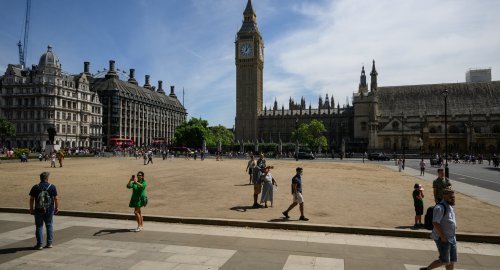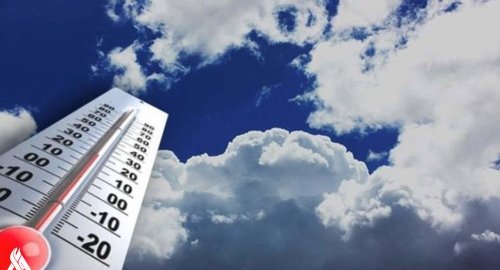
No longer 'cold country' title for UK as it is a must to adapt to heat

- 18-07-2022, 20:27
INA – SOURCES
The UK is no longer a cold country, scientists have said, as climate breakdown means “previously impossible heatwaves are killing people”.
This week temperatures of 40C (104F) have been predicted for the first time by the Met Office, but climate models show these weather events are expected to become more common.
Climate scientists have called for the UK to quickly adapt to extreme heat or risk thousands of excess deaths.
The sun rises on Dunsden, Oxfordshire, UK, 18 July 2022. This includes having a specific heat risk strategy drawn up by the government, updating housing stock and ensuring newbuilds can cool down in hot weather.
Bob Ward, the policy and communications director at LSE’s Grantham Institute, said: “The current prime minister has ignored repeated calls to create a national heat risk strategy that would engage all relevant government departments in tackling the growing threat from heatwaves.”
He hit out at commentators and MPs who have said those who fear heatwaves are “snowflakes”. Sir John Hayes, the chair of the Common Sense Group of Conservative MPs, said at the weekend that heat warnings were evidence of a “cowardly new world”, adding: “It is not surprising that in snowflake Britain the snowflakes are melting. Thankfully most of us are not snowflakes.”
Ward responded: “In the UK media in recent days, some have claimed that the increasing attention being paid to the dangers of heatwaves is a sign of a decline in British resilience. But such displays of callousness about hundreds of preventable deaths simply highlights the challenge we face in dealing with the growing risks from climate change.
“It is time for the UK to stop thinking of itself only as a cold country, where any bout of summer sunshine is celebrated as an opportunity for beach visits and ice-creams. Heatwaves are deadly extreme weather events that will grow worse for at least the next 30 years. We must adapt and do a better job of protecting ourselves, particularly those who are most vulnerable to hot weather.”
Scientists have urged governments to work quickly to phase out fossil fuels and reach net zero emissions in order to stop the situation becoming more deadly.
US Central Command: We killed ISIS terrorist leader Abu Yusuf in Syria
- International
- 24/12/20
Liverpool compete with Real Madrid to sign Olympique Lyonnais star
- Security
- 24/12/19
ISC, ADX discuss Strengthening Economic Ties
- Economy
- 24/12/16
Iraq assumes presidency of Arab Investment Company’s Executive Board
- Economy
- 24/12/17












